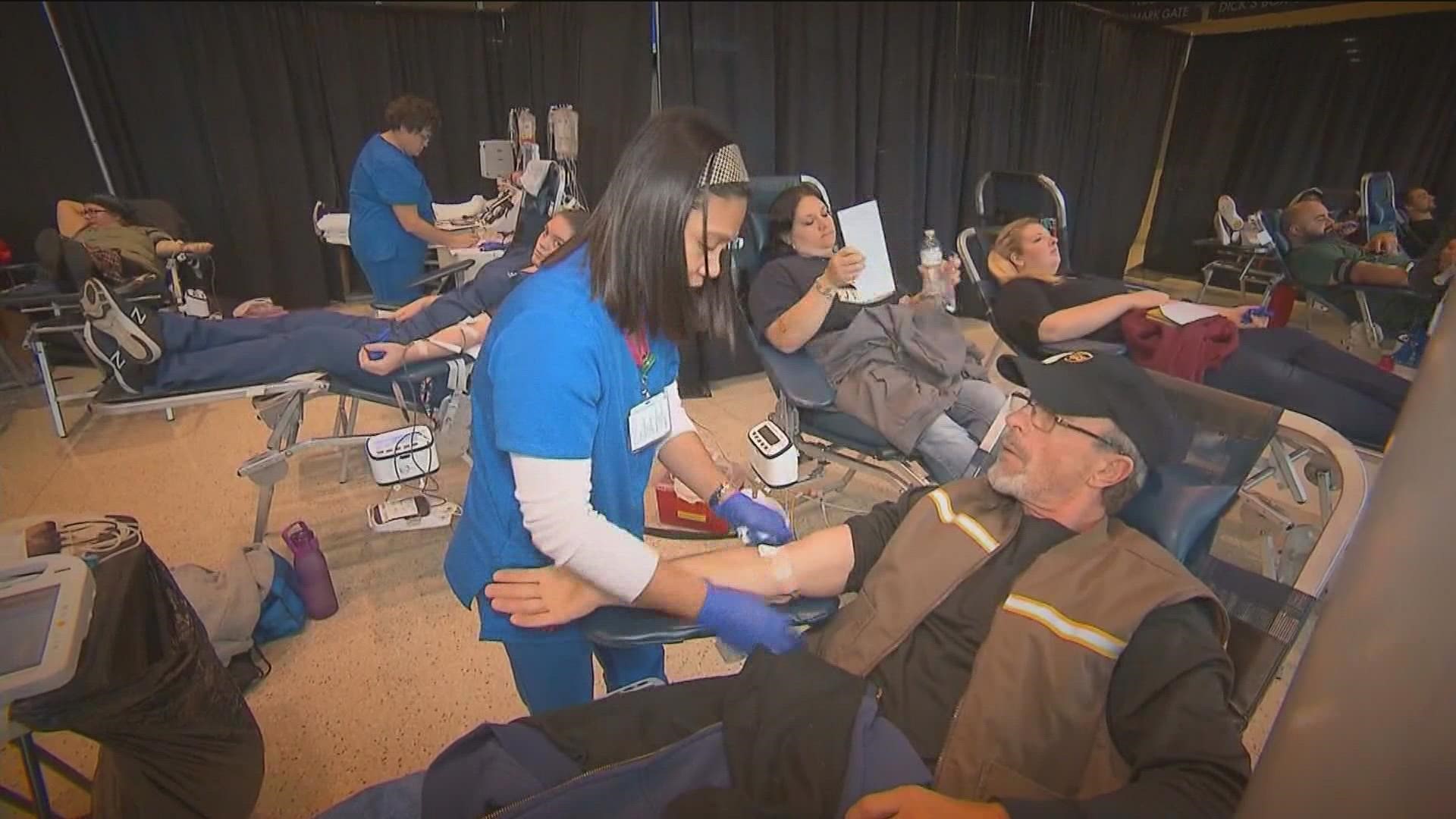ATLANTA — As the nation’s blood shortage continues, we verify if outbreaks of the flu and RSV are making matters worse.
Hospitals need blood donations to perform surgery and treat trauma patients. In January, the American Red Cross declared a crisis due to the worst blood shortage in over a decade.
The Question
Have recent outbreaks put a severe dent in donations?
Our Sources
- The American Red Cross
- Blood Assurance, a non-profit that serves healthcare facilities in Georgia and four other states.
The Answer
Yes, recent viral outbreaks have impacted our nation’s blood supply, leading organizations to encourage people to get vaccinated to stay well and donate.
What We Found
To verify the impact of the flu and RSV, we turn to the American Red Cross and Blood Assurance, a non-profit that serves healthcare facilities in Georgia and four other states.
Nationwide, hospitalizations for the flu are at the highest level in over a decade while emergency room visits due to RSV (Respiratory Syncytial Virus) continue to surge.
Blood Assurance reports that some donation drives have been canceled because too many people called out sick. In a statement, Christopher Swafford, Chief Operating Officer for Blood Assurance said, “It’s quite alarming because it’s not even winter yet.”
However, Evan Peterson of the American Red Cross adds that anyone feeling sick should not donate blood.
“We do a health screening before anyone is able to donate, just to make sure,” said Peterson. “Some people do get disqualified as a result of that.”
Both organizations are offering a variety of incentives to healthy people willing to donate in December.
Peterson said the Red Cross gets a lot of questions from people wondering if it’s ok to donate if you’re recently vaccinated.
However, he added "If you have a COVID vaccine or booster or you had your flu shot, that does not disqualify you from donating.”

